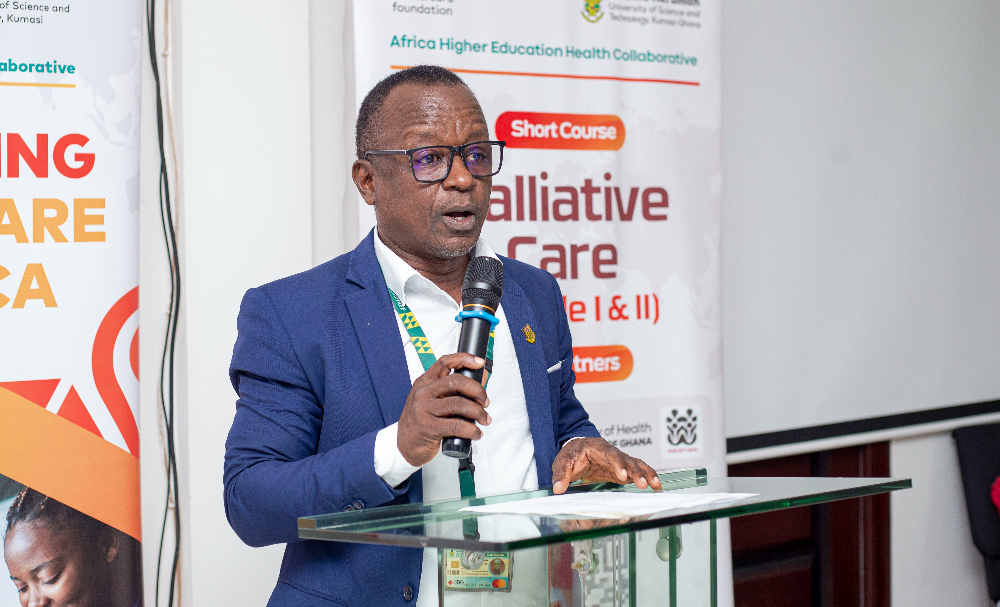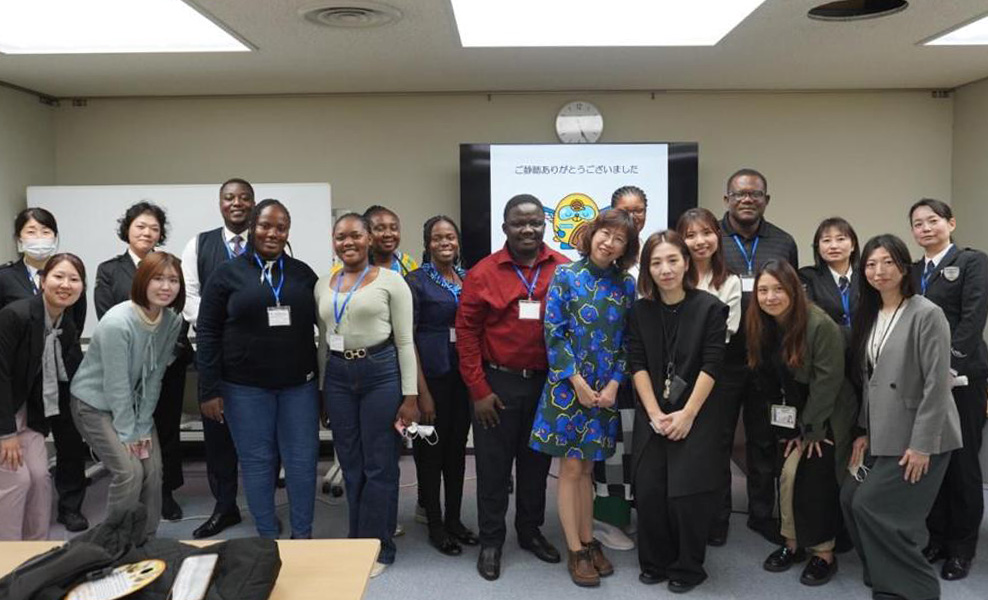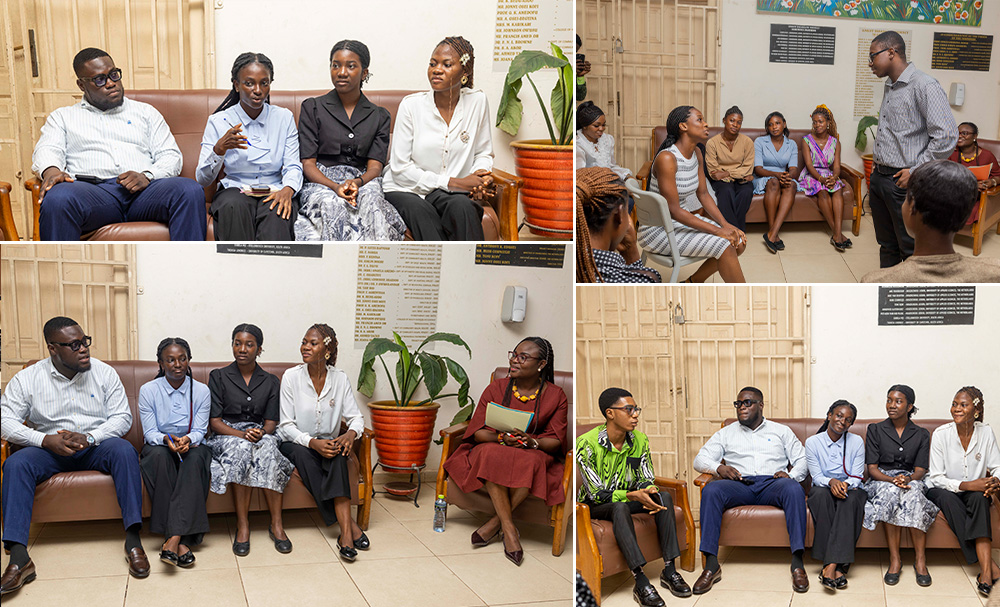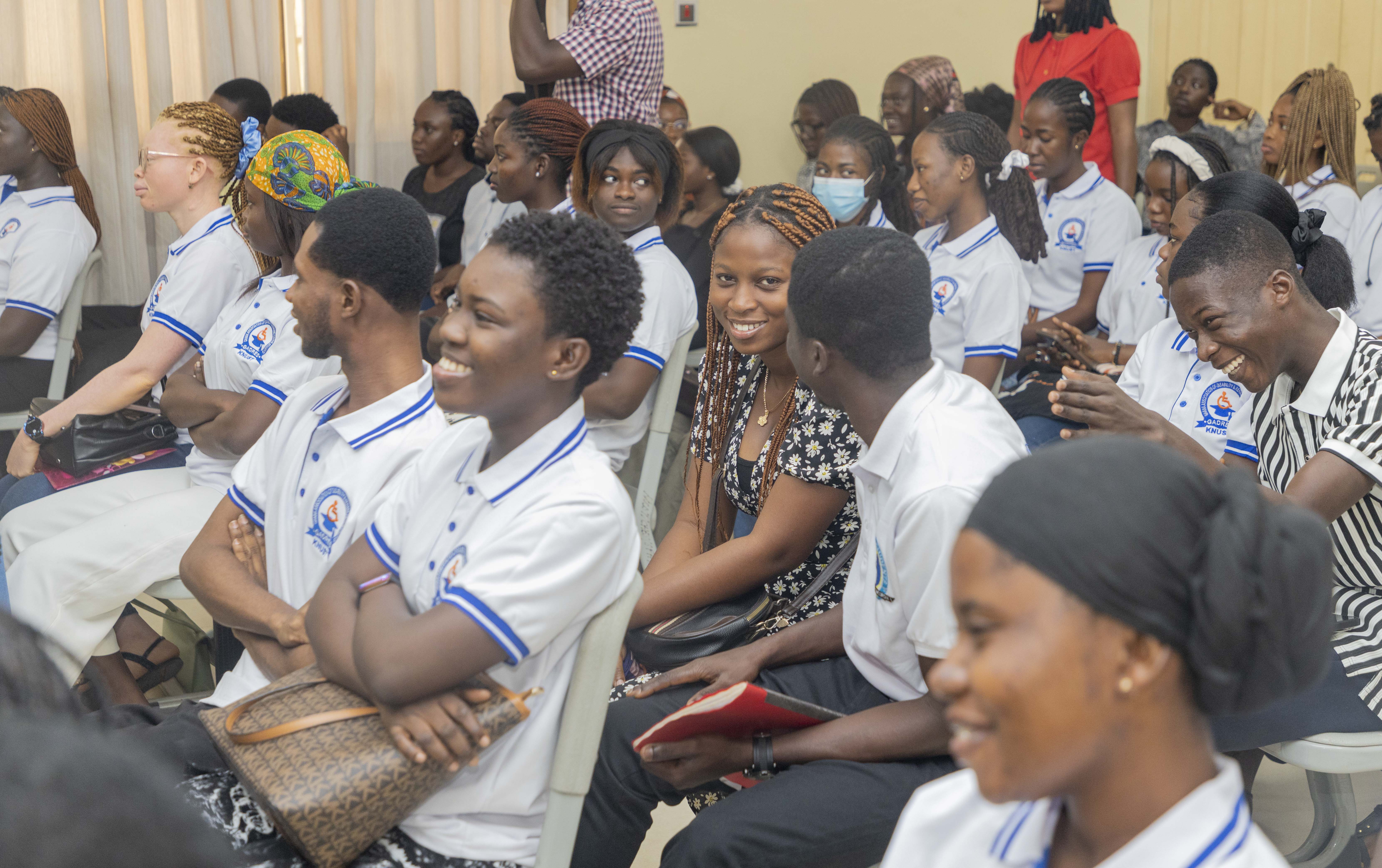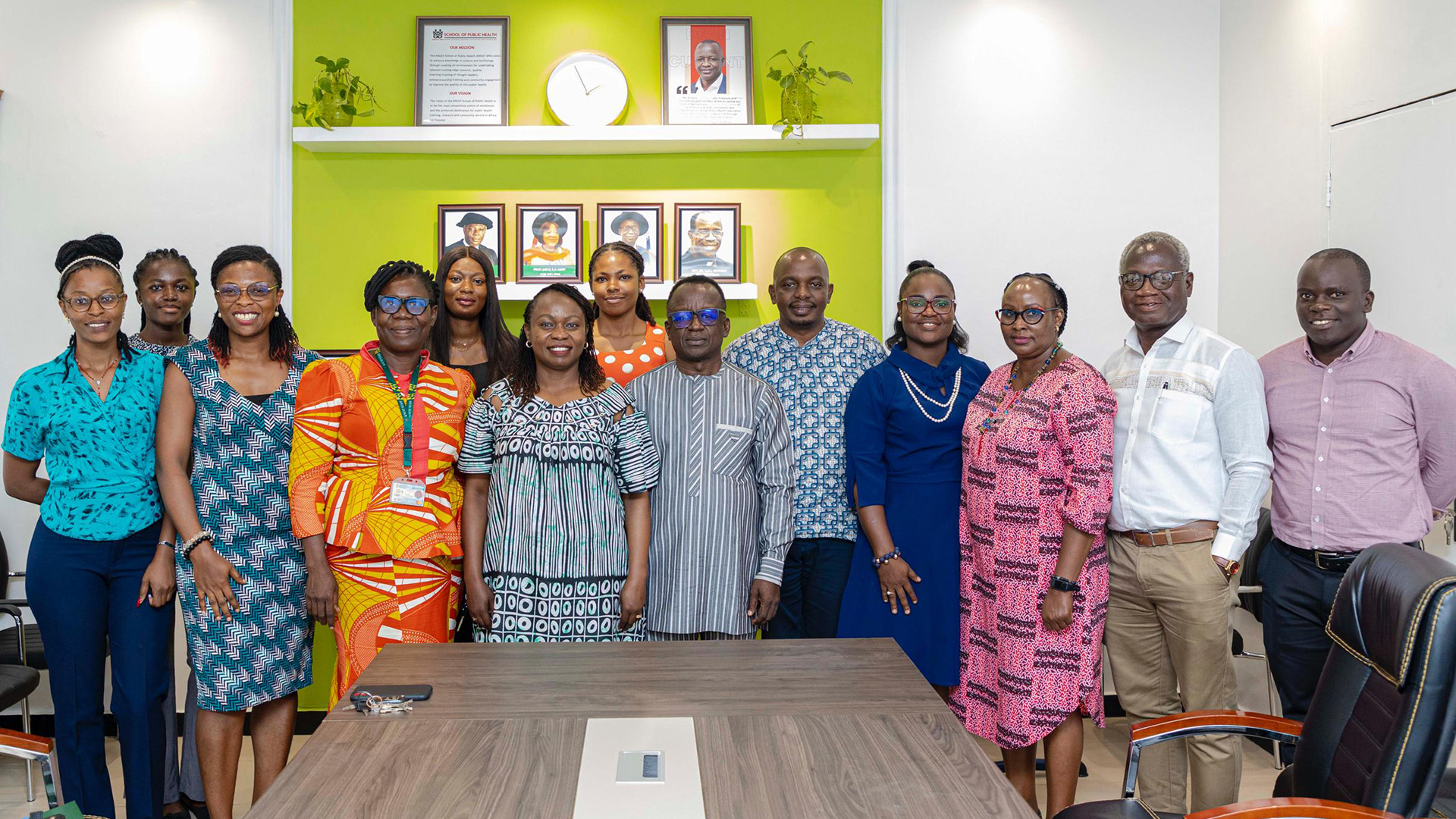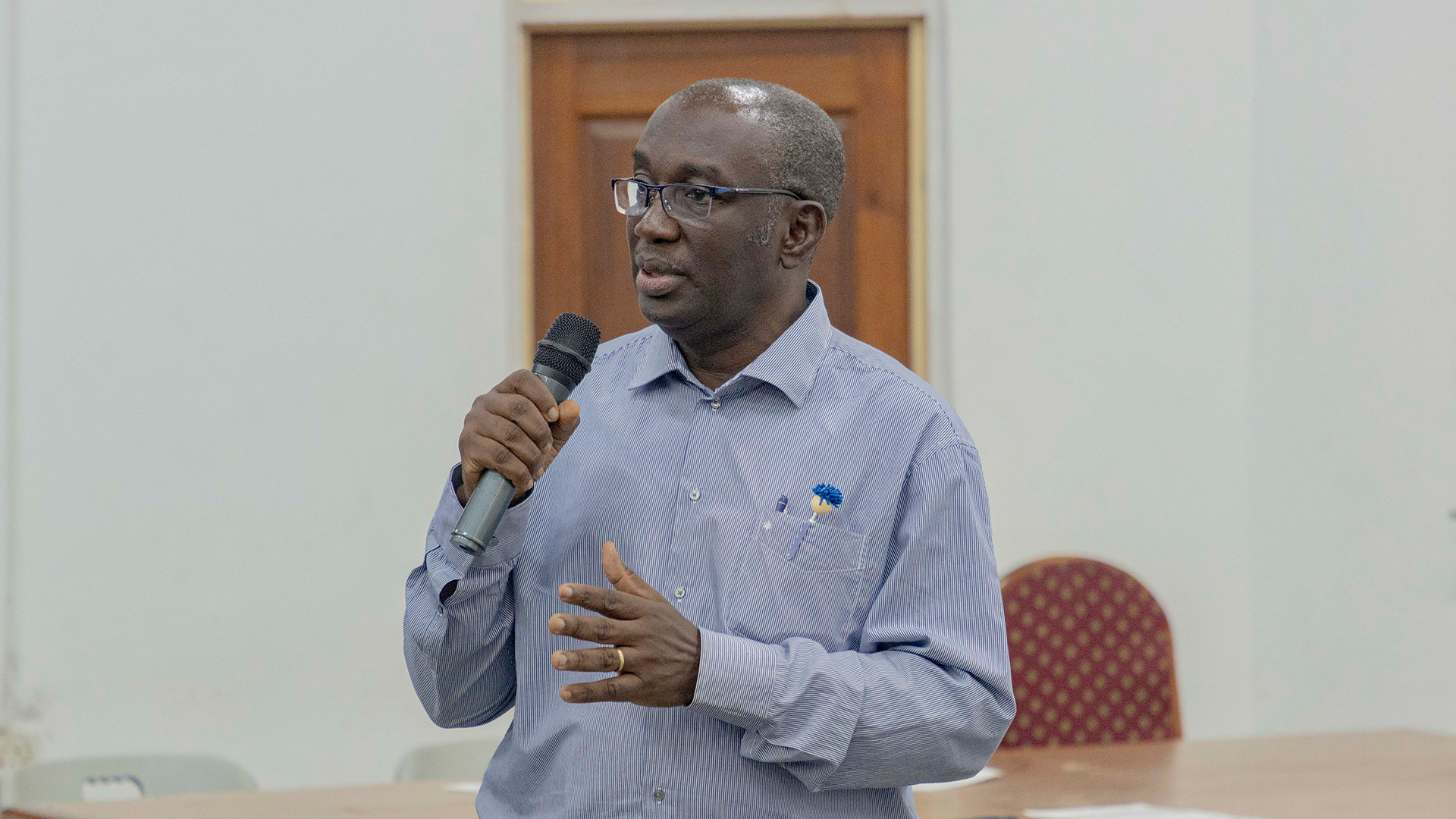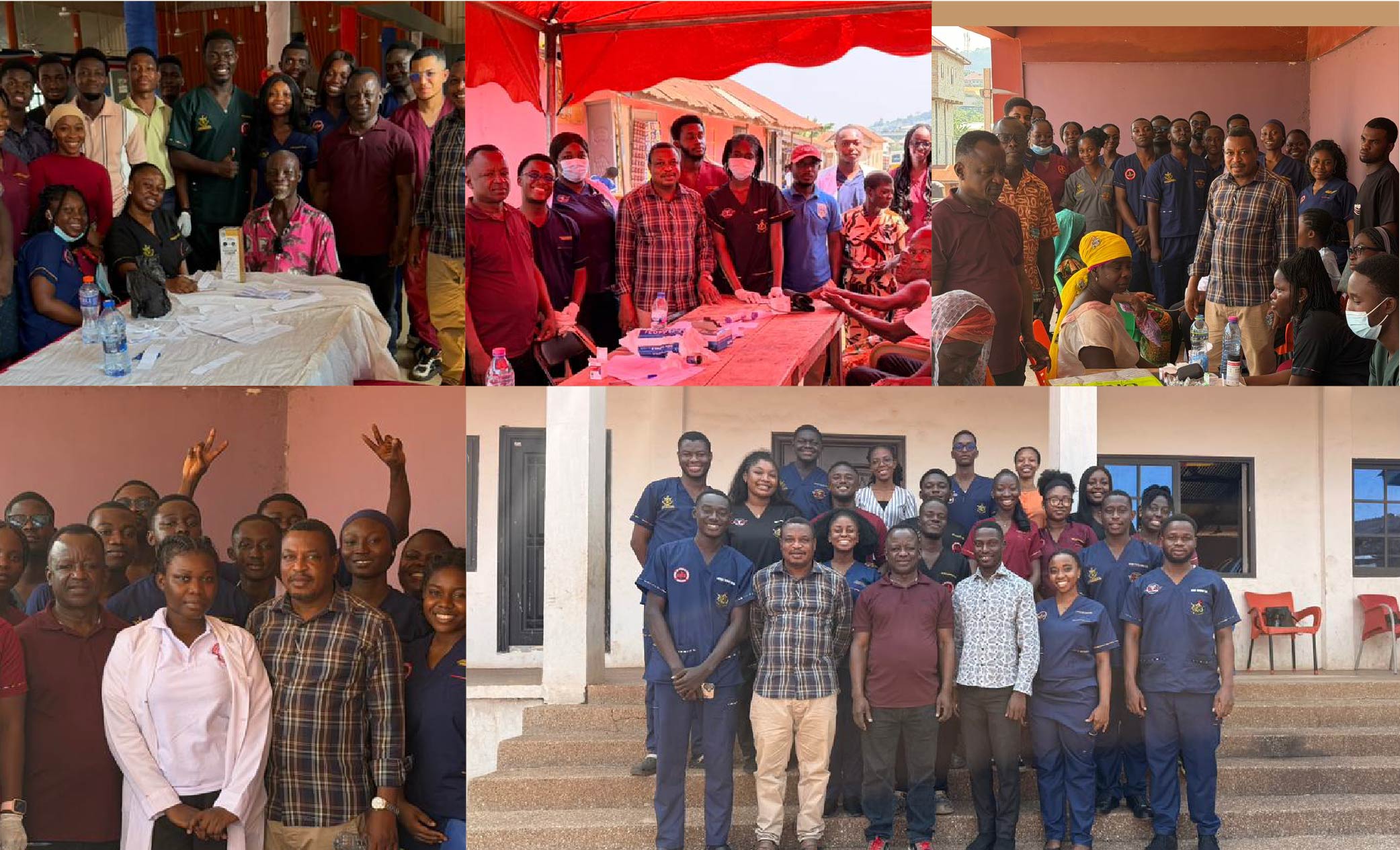Dean of the School of Public Health at the Kwame Nkrumah University of Science and Technology (KNUST), Professor Peter Agyei Baffour, has called for deeper collaboration among African institutions to strengthen healthcare systems on the continent.
“To maximize impact in Africa, I continue to implore all partner institutions to keep the flames of teamwork alive,” he said. “We need each other to maximise the needed impact on Africa. There is strength in our collaboration. Africa can be built through Africans.”
Prof. Baffour made the remarks at the opening of the third cohort of the Palliative Care short course under the Africa Higher Education Health Collaborative. He emphasized the importance of capacity-building, continued learning, and sustainable partnerships in delivering quality healthcare, particularly in palliative care.
“All we need is to build our capacity, learn and relearn, sharpen our skills, and maintain continual partnership,” he said, urging participants to take collective action in advancing healthcare in Ghana and across “Mother Africa.”
Also speaking at the event, Professor Elvis Ameyaw, Dean of the School of Pharmacy and Pharmaceutical Science (UCC), stressed the urgent need to make palliative care an essential component of Ghana’s healthcare delivery system.
“Palliative care is not about adding days to life, but life to days,” he stated.
He described palliative care as a holistic approach that not only meets patients’ physical needs but also their emotional, spiritual, and social wellbeing. Prof. Ameyaw noted that while the field is still evolving in Ghana, notable strides are being made.
“The commitment of healthcare professionals, organizations, and government bodies is essential in ensuring that all Ghanaians, no matter their background, have access to passionate and comprehensive palliative care,” he said.
The short course is a joint initiative between the Mastercard Foundation, KNUST, the University of Toronto, and Ghana’s Ministry of Health. Now in its third year, the course is facilitated by the Health Employment pillar of the Collaborative, led by Dr. Kofi Akohene Mensah. It seeks to equip 20 selected health professionals from across the country with the necessary skills to provide care for patients with serious illnesses such as cancer.
Prof. Ameyaw emphasized that providing palliative care goes beyond clinical skills, calling for compassion, active listening, and a commitment to human dignity.
“We are not here to fix everything, but we are here to ensure that no one faces challenges alone,” he said. “Your dedication and hard work are what will transform this vision into reality. Together, we will create a future where palliative care is a standard of excellence in healthcare.”
KNUST lead facilitator, Dr. Arti Singh, commended the diversity and richness of experiences represented in the course.
“We have lots of diversity, lots of specialities and different careers in the healthcare system here,” she said. “As you learn from us, we are also keen to learn from your end, where you come from and the knowledge you bring.”


